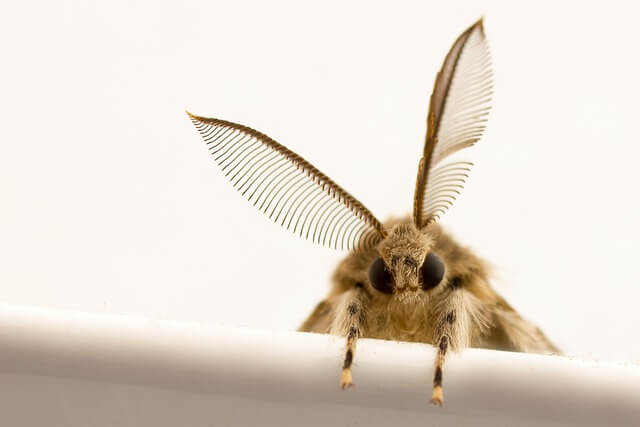Night-time pollinators, such as moths, may be just as important as bees in visiting plants and should receive conservation and protection efforts, according to a new study from the University of Sheffield.
The research suggests that moths, facing pressures from urbanization, may be less resilient than bees due to their complex life cycle and specific plant requirements.
Interestingly, the study reveals that moths play a crucial role in supporting urban plant communities, accounting for a third of all pollination in flowering plants, crops, and trees.
The researchers propose that urban planning and redevelopment should prioritize the introduction of plant species that benefit both moths and bees to ensure the health of urban ecosystems.
Dr. Emilie Ellis, the lead author of the study, emphasizes the importance of protecting urban green spaces and ensuring their development goes beyond bee-focused conservation to support a diverse range of wildlife. This approach will help maintain resilient populations of both bees and moths, resulting in healthier and greener towns and cities.
The study demonstrates that bees and moths visit different plant communities. Moths were found to carry more pollen than previously thought and visit a greater variety of tree and fruit crops than previously identified.
In urbanized areas, the prevalence of non-native plant species or reduced plant diversity can lead to fewer interactions between insects and less attractive plant species, negatively affecting both plants and insects.
Dr. Ellis highlights the critical role moths play in pollinating plants, including crops, and calls for increased awareness of their importance in establishing healthy environments. As moth populations have declined significantly in recent decades, efforts to raise awareness and prioritize moth-friendly planting are crucial for the climate crisis and preventing further losses.
Dr. Stuart Campbell, a senior author on the study, explains the challenges in understanding which insects contribute to pollination. With approximately 250 bee species and over 2,500 moth species in the UK, the study focused on using DNA sequencing to identify pollen stuck to night-flying moths. This revealed that moths likely pollinate a range of plant species, including many wild ones that bees do not typically pollinate. The study emphasizes the intricate networks between insects and plants for pollination and the need to consider the best food sources for different pollinators, including nocturnal species like adult moths.
In summary, the study underscores the significance of moths in pollination, highlights the importance of diverse planting for both moths and bees, and provides insights for urban planners and policymakers to develop green spaces that support resilient pollinator populations.
If our reporting has informed or inspired you, please consider making a donation. Every contribution, no matter the size, empowers us to continue delivering accurate, engaging, and trustworthy science and medical news. Independent journalism requires time, effort, and resources—your support ensures we can keep uncovering the stories that matter most to you.
Join us in making knowledge accessible and impactful. Thank you for standing with us!

